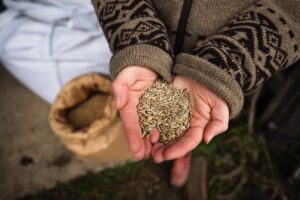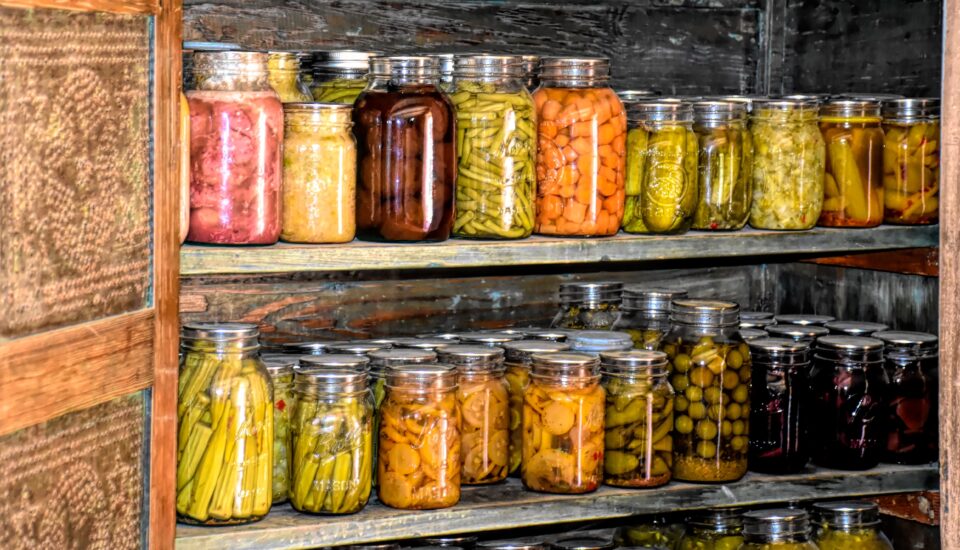
GMOs – A Controversial Topic

GMOs - A Controversial Topic
Dear Friends of Holistic-Ways,
Today I would like to write about a very controversial topic: Gene Modified Organisms (GMOs). Why? Well, the discussion started after I had posted news about German supermarkets demanding to return to GMO-free poultry feed and eggs.
Some people raised the question about the difference of GMOs and hybridization. Of course, I am not a scientist. Some say that hybridization is just an early stage of GMOs; crude, so to speak. Others oppose.
At first, I would like to explain the difference between intrabreeding and interbreeding. During the process of intrabreeding two plants are used to form a new organism through a process that would be able to occur in the natural world. Interbreeding, on the other hand, is the breeding of two organisms that would not be able to breed in the natural world. The latter is what happens in laboratories around the country where genes of organisms are modified to produce herbicide resistant corps, for instance. However, although the industry promises higher yields, less use of agrochemicals, and maybe eventually nutritious GMO food that can grow in depleted soils, the breeding is uncertain (U.S. National Library of Medicine, 2005). Skeptics counter that current scientific testing is not sufficient and only provided by a handful of multinational biotech companies. These companies, by the way, buy up all the natural seed stock and are suspected of destroying these natural supplies to work towards creating an organism monopoly, making growers rely on their stocks and products for crop production. This threatens the purity and shear existence of indigenous plants.
Another argument is that GMO crops can defeat world hunger. Farmers in the United States filled 2.4 billion acres with gene-modified plants this past year. I personally wonder why we still have hungry people in this country. Additionally, I actually think that we have even more ‘hungry’ people than before; taking into account the disease-ridden population, which is caused by malnourishment through eating food-products rather than real food.
One example I would like to bring up regarding food products is the topic gluten. In fact, I am holding a lecture, which is titled “Gluten-sensitivity. Is it a fact or a fad?” Unfortunately, the number of people seemingly getting sick from gluten is high and getting higher. The question I asked myself was why that is the case. Haven’t we, as human beings, grown and eaten grains in various forms and in every culture of the world for thousands of years? So why is it that this food should all the sudden make us sick in epidemic proportions? Personally, I found it just logical to examine what changed over the past years. I was not the only one. Actually, once again I found evidence of studies in the National Library of Medicine, where there was an abstract about a study that proposed that glyphosate, the active ingredient of the herbicide Roundup, is an important causal factor of this epidemic of thyroid disease, cancer, and digestive problems. Read the whole article here.
Another problem I’d like to mention is the growth of super weeds, which reportedly half of U.S. farmers have on their fields nowadays. These weeds can resist the herbicide Roundup just like the crops it has been made to protect. Moreover, another common misconception that the use of GMO crops will decrease the use of herbicides, help farmers conserve fuel and reduce tillage has been shredded by research conducted through the University of Washington States’ Center for Sustainable Agriculture and Natural Resources. In his peer-reviewed paper, which was published in the journal of Environmental Sciences Europe, the author, Chuck Benbrook, writes that “Monsanto’s Roundup Ready technology, which dominates corn, soy, and cotton farming, has called forth a veritable monsoon of herbicides, both in terms of higher application rates for Roundup, and in recent years, growing use of other, more toxic herbicides. Find the article here.
I surely could write much more about this topic, but I am certain you are tired of reading it by now. Bottom line, in my opinion, arguments like ending world hunger, and the decrease of agro-chemical use on our crops sounds noble but in reality, it is only fed by eagerness for power and greed for gain.
Have you ever tried organically grown food from a local farmer and noticed how much it nourishes your body and how little food you actually need to satisfy you completely? How should this compare with chemically and artificially loaded products, which our body does not even know how to utilize as food. No micronutrients, no minerals, no vitamins, amino acids, etcetera.
Wishing you the best for the upcoming weekend. Of course, also a wonderful week.
Blessings,
Alexandra



